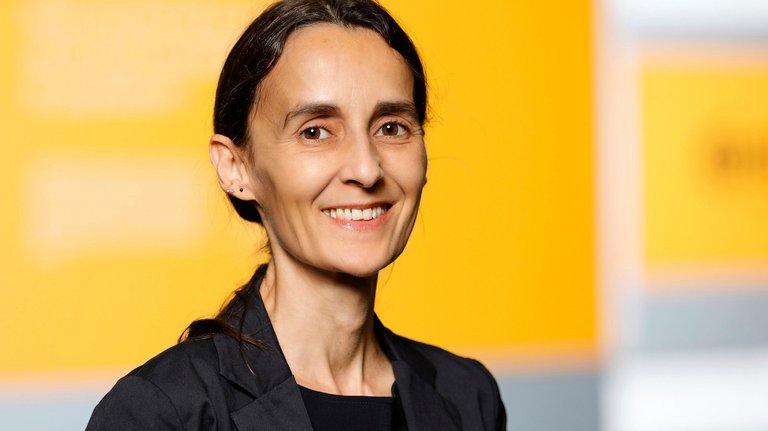8. “Continental Student Survey”
Discussion about women's quota leaves its mark on female students’ view of career opportunities
- Graduates believe there is a need to make up lots of ground on diversity issues
- Half believe in personal competitiveness in an international comparison
- Willingness to take on international jobs remains low
Hanover, May 12, 2011. Discussions about introducing women’s quotas in German companies have left a definite mark on female students in the country. Young women are more cautious about their career opportunities than they have been since 2004. Only around one in two students is very or relatively confident when it comes to their career prospects, compared to two out of three female students just two years ago. At the same time, the discrepancy with their male counterparts’ rating of their own future opportunities has risen to a new high. The difference is around 15 percentage points, with around 70 percent of male students being very or relatively confident about their career prospects.
These are some of the findings of the 8th representative “Continental Student Survey” 2011 of prospective engineers, natural scientists and economists, published by the international automotive supplier in Hanover on Thursday. The company engaged TNS/Infratest to question around 1,000 students as to their opinions on careers, the world of work and university-related issues. This year, a further focus area was the issue of diversity, in terms of age, origin and gender, in the context of scarcity of skilled employees and demographic trends.
Generally, the majority of both male and female graduates remains optimistic about their careers. But although a strong economic recovery can be seen after the global financial and economic crisis, students rate their career opportunities and prospects as slightly weaker than last year. Nevertheless, 61.7% still consider their prospects to be very good or good, although this is more than 3 percent down on 2010 (65%), the lowest figure since the survey began back in 2004. This bottom figure in the survey can be attributed to the rather cautious opinions of female respondents. A figure of just 53.7% among women depresses the average value to 61.7%, with male students much more confident (71.1%).
“Personally, I feel that university graduates have good career prospects. In my opinion, successful students who complete their studies with flying colors at a renowned university have very good chances for a rewarding start in their career. It doesn’t matter here whether the graduate is male or female. The most important criteria is their record of achievements,” commented Ariane Friedrich, competitive athlete and graduate of the Verwaltungsfach-hochschule Wiesbaden.
At the same time, students gave the state and business a poor rating in terms of their diversity management. Almost half of respondents believe that neither business nor the state has done enough to meet the challenge of diversity in terms of age and gender. Students believe the key initiatives by business to help achieve a better work/life balance are flexible working times (22.4%), childcare at work (22.2%), full day childcare (10.3%) and home working options (8.7%). The graduates believe that the state’s responsibilities include full day childcare (29.4%), state subsidies or support for families (6.9%), cheaper or free childcare places (6.4%), support for childcare in the workplace (5.6%) and increased parental leave pay (4.5%).
“With the results of this survey, students are sending a clear message to the state and business: tackle the challenge of diversity, come up with and offer solutions, open up new perspectives,” summarizes Continental Executive Board member for HR, Heinz-Gerhard Wente. “In recent years, Continental has already responded to this. We want to increasingly make female graduates aware of the career prospects at one of the world’s leading automotive suppliers and to sustainably improve their career opportunities with us through active coaching and mentoring.”
Male and female students alike consider the working conditions in Germany to be slightly worse than in other industrial countries (38%) when it comes to work/life balance. Particularly in respect of female managers, 32.7% of respondents believe that the balance is more difficult to achieve in Germany. In terms of home care of sick or elderly family members, 30.5% rate the situation in Germany as slightly worse.
The students only give business credit for achievements in terms of international skilled personnel (51.8%; state: 33%). In terms of support for family and working (business: 22%; state: 29.7%), training (development) of older (business: 18.7%; state: 18.8%) or poorly qualified workers (business: 22.7%; state: 25.6%), both the state and business come out with a less than positive rating.
When asked about their basic understanding of diversity, almost a quarter admit that they do not have a firm concept, while a further 22.5% understand the idea of diversity, with others mentioning cultural plurality (9.4%) and comprehensive knowledge (9%). “It is apparent that the concept of ‘diversity’ is not yet really tangible for many students. Around 30% responded to the corresponding question with “Don’t know”, 25% gave a loose definition without much content. There is a definite need for clarification here,” said Prof. Dr.-Ing. Erich Barke, President of the Leibniz University, Hanover. “It is amazing, however, that 83% of respondents still cite ‘diversity’ as an innovation factor.”
“The 30,000 skilled personnel shortfall in the MINT sector is a major challenge for Germany as a business and academic location. Not just in terms of getting young people interested in MINT and recruiting graduates, but also viewing diversity as an opportunity. In concrete terms, this means promoting and advancing diversity as an innovation factor in terms of older workers, women and internationalism,” Wente explains.
In view of the shortfall in skilled personnel, particularly engineers and natural scientists, 52.7% of respondents believe immigration of skilled personnel is an opportunity for Germany to maintain its position internationally. However, at the same time there is a split when it comes to removing barriers for qualified workers from other countries: 42.9% are in favor of this, 40.5% reject it. When asked about the statement by German Education Minister, Annette Schavan: "What should cause us concern is not immigration into Germany but emigration out of it. If we don’t do anything about this, the shortfall of skilled labor will become the biggest damper to growth,” 73.3% agree or totally agree. “This needs to be investigated and analyzed in more depth,” was Barke’s response.
Three quarters of respondents believe that the concept of “lifelong learning”, i.e. development of older and less qualified employees, is an opportunity to become more competitive internationally, and call on both business and the state to enable urgently required skilled personnel to work until the age of 67. Specifically, the students called on business to offer and finance continuous development (17.6%), offer jobs with flexible working times (9.9%), give greater value to experience (4.2%), support employees of different ages (4.5%), increase partial retirement options (4.5%) and age-related relocations in the company (4.1%). Meanwhile, they expect the state to promote employment of older people (9.7%), arrange continuous development activities (7.6%) and finance these (5.5%), subsidize companies with a high quota of older employees (6.5%) and early retirement schemes (4.0%).
When asked to rate Germany’s competitiveness as an industrial location, a total of 72% of respondents believe it is good to very good. However, only 53.3% of students rate their personal competitiveness in an international comparison as good to very good, while the rating for their acquired knowledge in an international comparison was around eight percent down on the previous year (top 2: 2011: 54,7%; 2010: 62,4%). “Most of the students consider the international competitiveness of German companies to be above average. Conversely, one third of the students feel that the knowledge they attained at the university is only satisfactory. Study programs should become more practice-oriented to strengthen students’ self-confidence and competitiveness,” demanded Stefan Reuschel-Nagel of the German student organization bonding studenteninitiative e.V.
As a result, the willingness to live and work in other parts of the world for two or three years has hardly changed at all. As in 2009 and 2010, graduates do not want to "definitely" work "anywhere", but intend to base their decision on the attractiveness of the destination country. Switzerland and the USA enjoy by far the greatest popularity. On a scale from 1 (= Definitely) to 5 (= Definitely not), these countries achieved ratings of 2.5 (USA) and 2.7 (Switzerland). Eastern European countries (3.8) and Russia (4.0) are still lagging behind, even compared to Asian countries such as Japan (3.6) and China (3.8).
“The idea of working abroad, or in my case taking part in competitions, is always enticing. Although an unknown environment does present new challenges, it can also be a big advantage on a résumé. Personally, I like competing in countries I don’t know since it gives me the opportunity to get to discover new and interesting cities, people and cultures,” added Friedrich.
Here you can download the press release as a doc-file. - doc (143KB)

